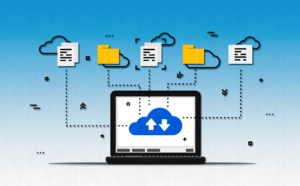Physical Address
304 North Cardinal St.
Dorchester Center, MA 02124
Physical Address
304 North Cardinal St.
Dorchester Center, MA 02124

Data backup and recovery involves creating and storing backup copies of data. It safeguards businesses from data loss, cyber breaches, external attacks, software crashes, and hardware failures.
Today, many organizations and businesses are susceptible to many data threats. An organization may suffer irreversible data loss if it doesn’t maintain effective data backup strategies. Neglecting data backup solutions can lead to major financial losses, customer distrust, and legal consequences.
With the importance of data backups, getting insights into their advantages is crucial:
One of the most crucial components of data backup is security. A data backup and restore solution with high-security standards is vital for managing sensitive organizational information.
Investment in dependable data backup and advanced devices like i7 laptops can help companies avoid consequences like data sprawl and breaches. It is also crucial for maintaining customer data safety and compliance with legal standards.
The primary motive of data backup is to ensure data recovery and restoration. A sound data recovery system allows you to avoid downtime. It helps boost the speed of business processes.
Replication is a feature commonly found in most data backup and recovery applications. This functionality saves real-time copies of your sensitive data.
If you accidentally face data loss in the future, replication allows you to restore your projects on time.
Data recovery is a time-consuming and unpleasant operation. As a result, organizations need help with data management during the restoration process.
However, using appropriate data backup solutions makes managing the recovery process effortless. A standard data backup system also helps users back up instantly and frequently.
Most data backup solutions automatically create a thorough backup strategy for project management platforms. So you can safeguard your data from errors without compromising its efficiency.
Dynamic data masking provides real-time data protection by obscuring sensitive information when accessed by unauthorized users. It allows legitimate users to perform necessary operations while preventing the exposure of sensitive data, like credit card numbers or personal identifiers.
This technique is particularly useful in environments where various levels of data access are required, ensuring compliance without compromising usability.
Blockchain technology is increasingly integrated into data management solutions to ensure data integrity.
By using decentralized and immutable ledgers, blockchain ensures that once data is recorded, it cannot be altered or tampered with. This provides a robust mechanism for tracking data changes, preventing unauthorized modifications, and maintaining a clear audit trail for compliance purposes.
Homomorphic encryption allows data to be processed and analyzed while still encrypted without decrypting it first. This means sensitive information remains secure even during data analysis or processing operations. This approach is particularly useful for cloud-based data management systems, where data is processed offsite and needs to remain secure during computation.
Data management solutions increasingly leverage AI and machine learning algorithms to detect anomalies in data access patterns. By continuously monitoring user behavior and comparing it to established norms, these systems can identify potential security threats in real-time, such as unauthorized access or data breaches. This proactive approach helps mitigate risks before they can escalate.
Zero-knowledge encryption ensures that the data management provider cannot access the encryption keys or the data itself. Only the end user holds the keys, allowing everyone, including the service provider, to access the data with authorization. This method provides a high level of security, especially in scenarios where data confidentiality is paramount.
Advanced data management solutions implement granular, policy-based access controls that go beyond traditional role-based access. These policies can be dynamically adjusted based on user location, device type, time of access, and more. This ensures that data is only accessible under specific conditions, reducing the likelihood of unauthorized access.
Instead of storing data in a single location, some data management solutions employ data fragmentation and distribution techniques. Data is divided into smaller fragments and stored across multiple servers or locations. Even if one location is compromised, the attacker only gains access to a small, unusable fragment of the data, making it difficult to reconstruct the entire dataset.
Privacy-preserving data sharing allows organizations to share data securely without exposing sensitive information. Techniques like differential privacy and secure multiparty computation enable data to be analyzed collaboratively without revealing individual data points. This is especially useful in industries like healthcare, where data sharing is essential but must adhere to strict privacy regulations.
Losing vital organizational data can put your company out of business. Simply losing customer information can lead to lawsuits, decreased productivity, financial losses, and more.
So, investment in data backup services is expensive, but it offers great results in the long run.
Data is the new oil of the digital economy. An increasing presence of data in organizational structure helps to access customers’ preferences. Businesses can achieve a boom in operational revenue by making strategies per their preferences.
In the data-driven world, an efficient data backup strategy is needed. However, choosing the best software seems difficult because different data backup solutions are available on the market.
Conduct proper research before buying data backup software, prioritizing features like compatibility, application support, flexibility, scalability, compliance, and so on.
So, don’t think too much! Grab your data backup software and keep the information intact!